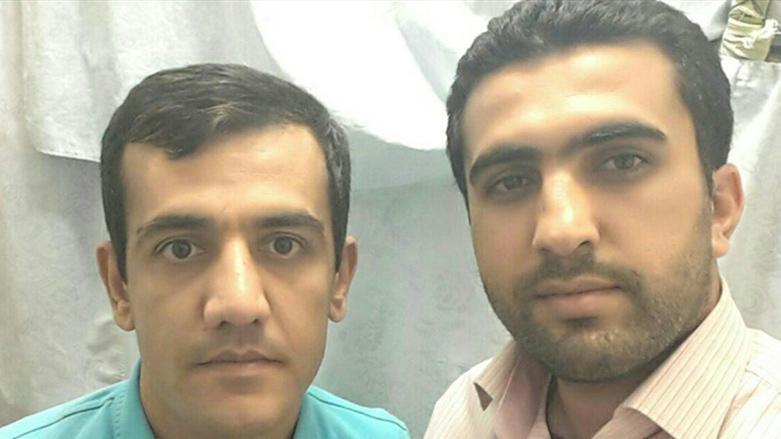Rights group fear son, nephew of assassinated activist may be executed

ERBIL (Kurdistan 24) – Human Right groups fear that the Moradi cousins will be executed in Iran after the father of one, who fought for several years for their release, was assassinated in Iraqi Kurdistan in July.
The two men, political prisoners Loghman and Zaniar Moradi, were recently summoned under the pretext they were to meet with a prison official. They were instead transferred to the Revolutionary Guards (IRGC) ward at Raja'i Shahr prison, raising fears they could be executed, the Abdorrahman Boroumand Center (ABC) said on Thursday.
A source close to Loghman and Zaniar Moradi, Kurdish political prisoners sentenced to death, has told ABC that prison officials have contacted the family by phone and asked them to report to Raja'i Shahr Prison for visitation Friday morning.
According to Amnesty International, the two cousins claim they were tortured into “confessing” to the 2009 murder of the son of a senior cleric in Marivan, Kurdistan province, and sentenced to death in December 2010.
The two were also sentenced for participating in armed activities with Komala, a Kurdish opposition group.
“Eghbal Moradi, father of Zaniar and uncle of Loghman, fought to save the pair from execution and called on international human rights groups to help end the execution of all political prisoners in Iran,” ABC said.
Moradi on July 17 was assassinated in Penjwin and had three bullet wounds. Many local observers suspect Iran’s involvement.
Following his death, Kurdistan Free Life Party (PJAK) on July 20 claimed responsibility for the killings of at least ten soldiers belonging to the Islamic Revolutionary Guard Corps (IRGC) in the city of Marivan in Iran’s Kurdistan Province.
The PJAK statement said the attack was a revenge attack for the killing of four of its fighters in Mariwan and Paveh, as well as the assassination of Moradi.
Several armed Kurdish groups have clashed with Iranian government forces over the past few months, including the Democratic Party of Iranian Kurdistan (PDKI), the Kurdistan Freedom Party (PAK), and the PJAK.
On Thursday, Iranian armed forces shelled PDKI bases on the border between Iranian Kurdistan and the Kurdistan region of Iraq.
Amjad Hossein Panahi, the brother of another Kurdish prisoner on death row, Ramin Hossein Panahi, earlier told the Centre of Human Rights in Iran (CHRI) that he is worried the clashes could worsen the situation for Kurdish political prisoners.
“The prison officer told Ramin that there’s a great chance that his sentence would be carried out because prisoners are not kept in solitary confinement for a long time without a reason,” Amjad Hossein Panahi, told the CHRI on September 3, 2018.
“When there are protests or armed confrontations in Kurdistan [Province] or other places, chances that death sentences are carried out increase in order to intimidate and cause fright,” Amjad added in an interview from exile in Germany.
In April 2018, Iran’s Supreme Court ratified Ramin’s death sentence for his alleged membership to the “outlawed” Kurdish nationalist group, Komala, and for drawing a weapon on IRGC agents during clashes.
Earlier, Amjad told Kurdistan 24 that Ramin had gone on hunger strike in the Rajaei-Shahr prison in Iran’s Karaj city and that his condition was worsening after a hunger strike of 12 days. He was transferred from Sanandaj to the new location in mid-August.
Ceng Sagnic, Coordinator of the Kurdish Studies Program at the Moshe Dayan Center in Israel, told Kurdistan 24 that such a tactic being used by the Iranian government should not come as a surprise.
“Iran is known for using Kurdish prisoners as a bargaining chip for indirect negotiations with Kurdish parties. Therefore, yes, I also believe that expanded Kudish Peshmerga attacks on Iran is one of the factors for increased risk of new executions,” he said.
Editing by Nadia Riva
